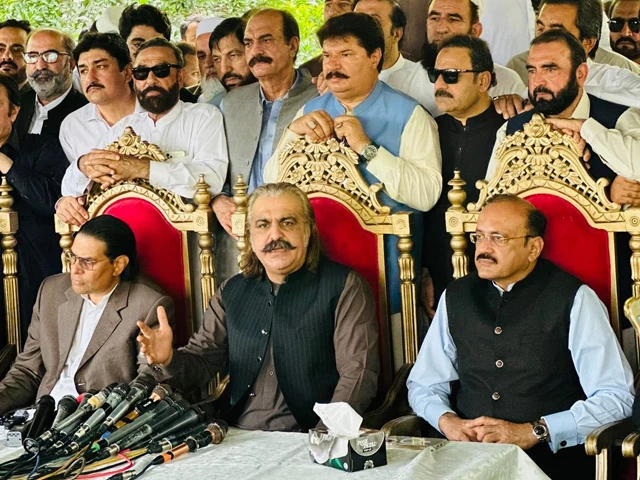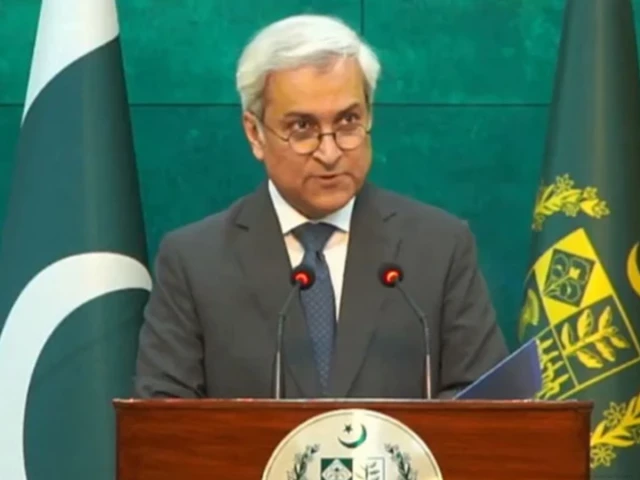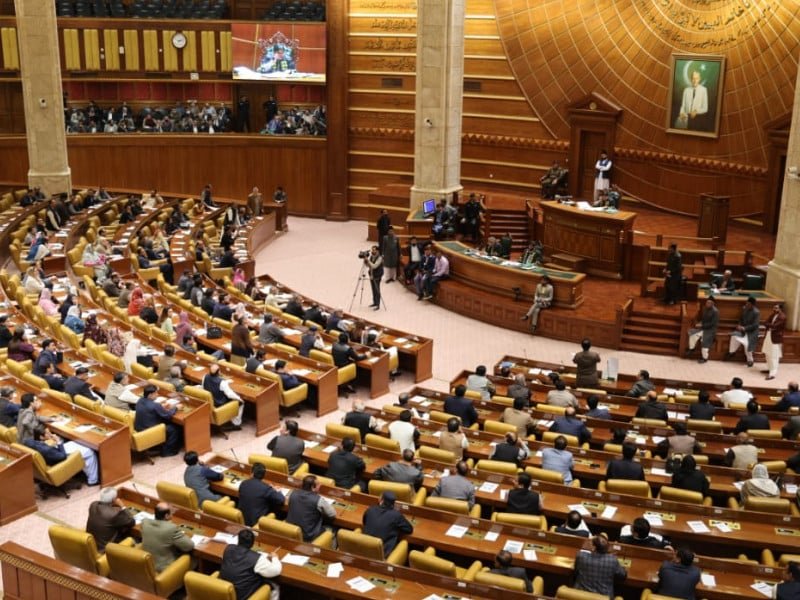The Political Landscape of Pakistan: A Call for Dialogue and Democracy
If you’ve been following the political scene in Pakistan, you might have noticed some intense discussions lately, particularly around the Pakistan Tehreek-e-Insaf (PTI) and its founder, Imran Khan. Khyber-Pakhtunkhwa (K-P) Chief Minister Ali Amin Gandapur recently made headlines by stating that Khan is open to talks with those who “hold real power.” This comes as PTI launches a structured 90-day campaign aimed at restoring democracy and advocating for Khan’s release.
What’s fascinating is the reaction from rival political parties, particularly the Pakistan Muslim League-Nawaz (PML-N). They’ve firmly rejected Gandapur’s overtures, asserting that if Imran Khan truly wishes to engage in dialogue, he’ll need to come to the table with other political forces, not just those within the establishment. It raises pertinent questions: How should political dialogue be approached in a democracy? Is it enough to merely indicate a willingness to talk, or does one need to demonstrate actionable commitment?
Gandapur emphasized several key points during a press conference, one being that the current protest efforts aren’t merely for political gain but are a fundamental fight for constitutional rights. Interestingly, he dismissed claims of internal divisions within PTI as misleading. Instead, he highlighted a shared mission among party members — the release of Imran Khan and the restoration of democratic processes.
Despite this united front, opposition figures, like Federal Minister Amir Muqam, have criticized PTI’s efforts as desperate theatrics. Muqam argues that the people deserve accountability for the PTI’s governance over the last 11 years and questions the effectiveness of Gandapur’s 90-day ultimatum. He suggests that true dialogue can only begin when Khan acknowledges his past actions and expresses remorse.
The notion of whether or not a structured political dialogue is possible hinges on mutual respect and the recognition of each party’s standing. In a landscape marked by tensions and allegations of power struggles, effective communication could be the bridge to understanding and potentially fruitful negotiations.
As discussions evolve, it’s crucial for citizens and party members alike to see the bigger picture — a functional, democratic Pakistan. Dialogue isn’t just about exchanging words; it’s an opportunity for growth, understanding, and ultimately serving the public’s interest. If you’re keen on delving deeper into the landscape of political discourse, platforms like Pro21st can be a great resource for connecting with like-minded individuals who are passionate about these issues. Let’s keep the conversation going!
At Pro21st, we believe in sharing updates that matter.
Stay connected for more real conversations, fresh insights, and 21st-century perspectives.





